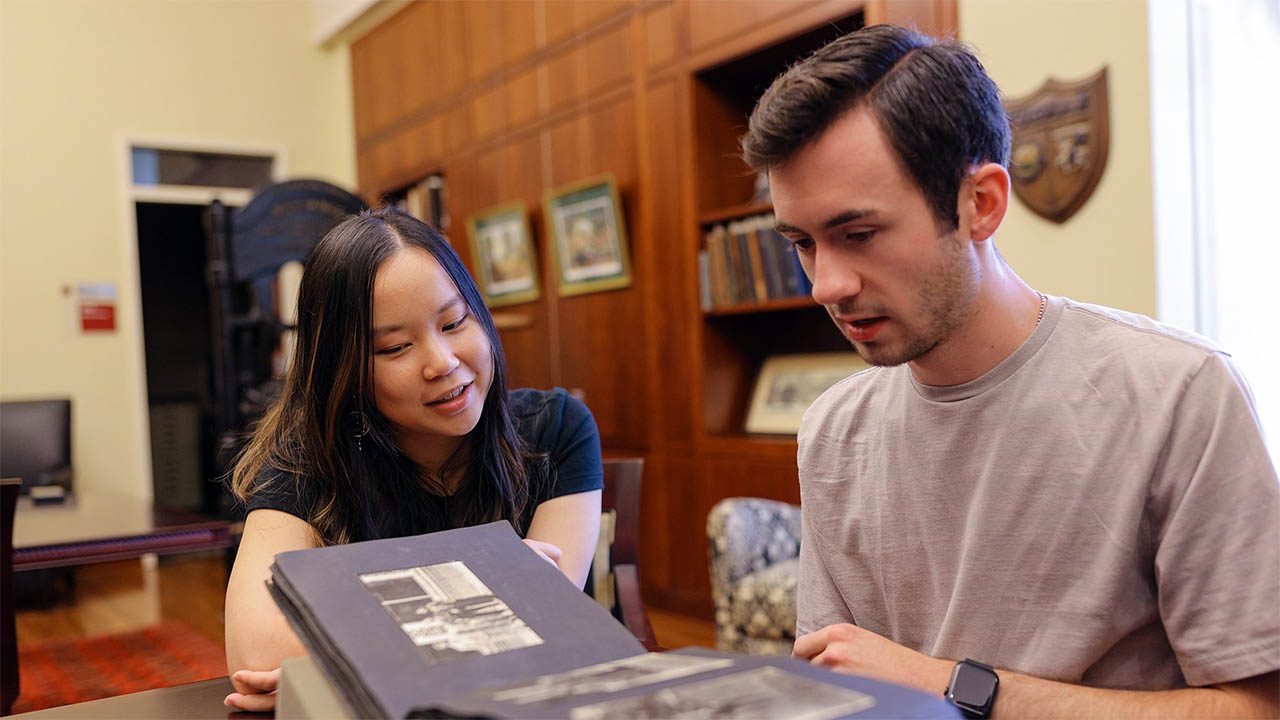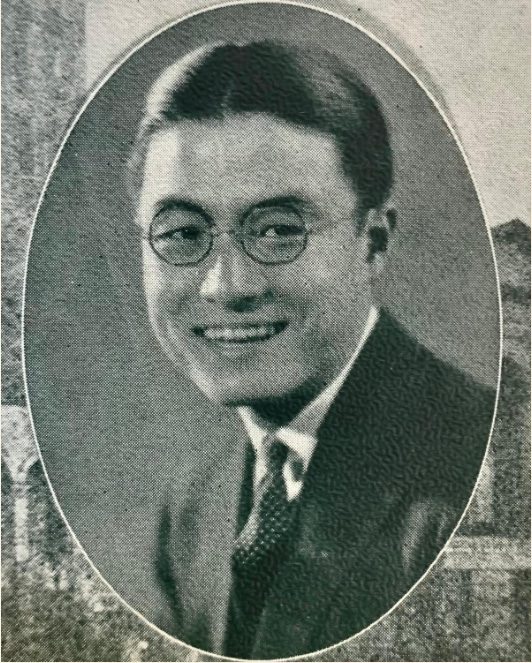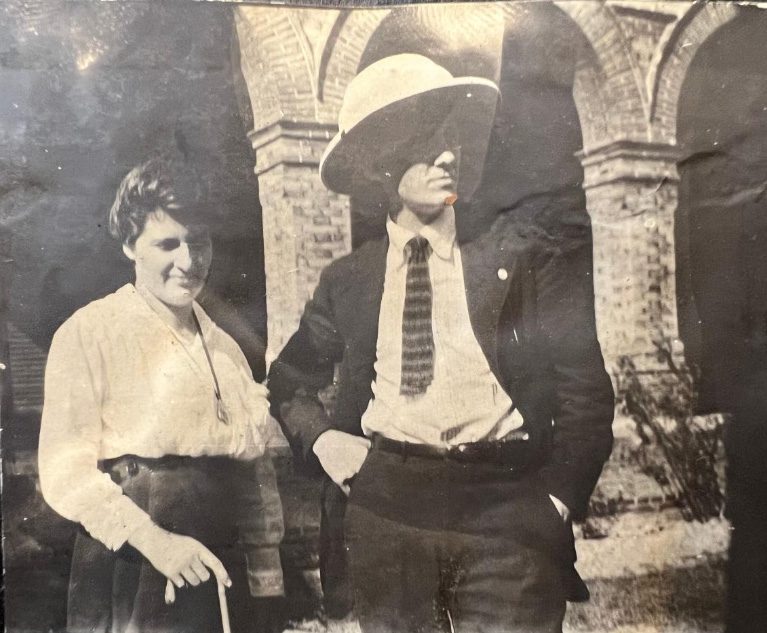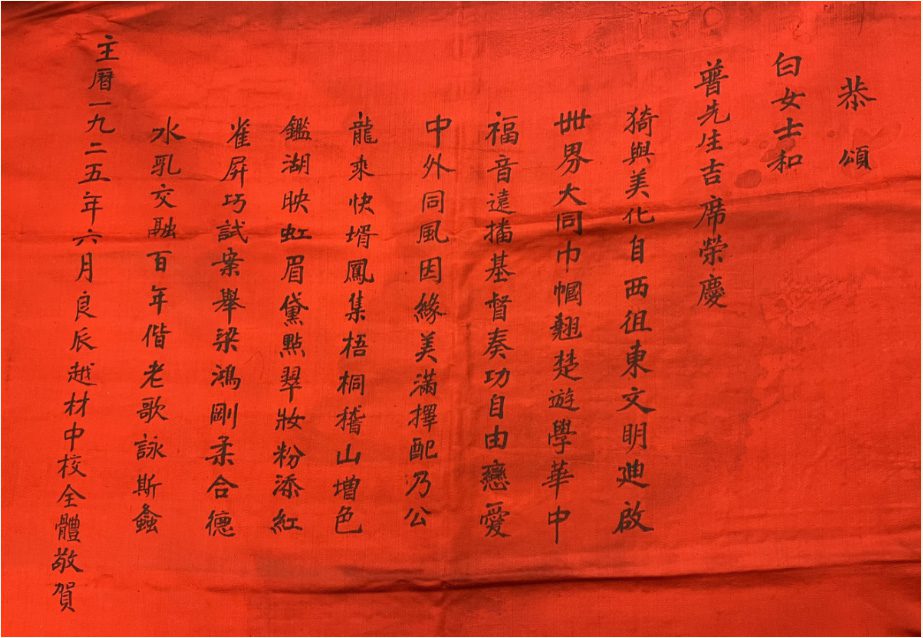‘Untold Journeys’ maps Furman’s longstanding connections to Asia

Like the rest of Furman’s Class of 1924, Charles Kilord Athen Wang was described in a one-paragraph biography under his photo in the Bonhomie yearbook.

Charles Kilord Alford Wang, member of Furman’s Class of 1924 / Credit: Bonhomie.
“From the far away land of shrines and temples came one who desired the educational training of the Western world,” it began. “Coming as he did, a cultured Christian, and maintaining his high ideals, Wang has won the admiration of all his fellow students.”
The yearbook notes that Wang, a resident of Kaifeng, China, and the first Asian student to finish a four-year degree at Furman, “speaks his mother tongue with marvelous brilliancy.”
In the digital humanities project “Untold Journeys: Exploring Furman and Greenville’s Connections with Asia,” the yearbook passage reveals as much about the attitudes prevalent at that time in a small Southern Baptist college as it does about Wang himself, said Kylie Fisher, an assistant professor of art history.
“This idea of othering and the concept of Orientialism is very much present, and that continues for several decades,” said Fisher, who advised student researchers Eva Kiser ’23 and Eli Kibler ’24. “There’s always this juxtaposition between Asian students and their white peers. Sometimes we forget that we’re all just human or we’re all just young college students.”
Rooted in missionary work
Published as a ArcGIS StoryMaps presentation, “Untold Journeys” began last year with a summer research fellowship. Diving into the James B. Duke Library’s Special Collections and Archives, Kiser, an Asian studies and anthropology double major, and Kibler, an English and Asian studies double major and film studies minor, studied the beginning of Southern Baptist missionary work in Asia in the 19th century.

Gordon Poteat, a 1910 Furman graduate, traveled with his wife, Helen Anne Carruthers Poteat, to China as a missionary in the early 20th century.
They also examined the scrapbook and memoirs of missionary Gordon Poteat, son of Edwin McNeil Poteat, Furman’s president from 1903 to 1918. An interactive map on the “Untold Journeys” site traces Poteat’s travels in China, starting in 1915.
Combing through decades of Furman publications and researching documents in the South Carolina Room at the Greenville County Public Library helped Kibler expand his research skills more than he anticipated, he said.
“Now I have the experience of practicing physical archival research, not simply online scholarly research,” said Kibler, who expects to use those skills in graduate school. “I can safely say that I am fully equipped to take on any investigative task I come across on my academic journey.”
Capturing oral histories
“Untold Journeys” shows the evolution of an academic field at Furman, from the first professors specializing in Asia through the creation of the Department of Asian Studies in 1989 and its growth into one of the largest Asian studies programs among Southeastern private liberal arts and sciences universities.
Fisher, Kibler and Kiser were able to continue their work thanks to grant funds from the Furman Humanities Center and the Department of Asian Studies. “Untold Journeys” has added interviews with Jim Leavell and Shusuke Yagi, founding members of Furman’s Asian studies department; Kailash Khandke, the first professor of South Asian heritage hired at Furman; and Katherine Kaup, the James B. Duke Professor of Asian Studies and Politics and International Affairs. These interviews were also added to the university’s Oral Histories project.
The research team presented their process and findings for “Untold Journeys” at the Southern Humanities Conference in San Antonio, Texas, in January 2023, and at Furman Engaged in April 2023.
“Finishing up our presentations at Furman Engaged felt so cathartic,” Kibler said. “It gave us a chance to formally present our work to the department and other faculty members.”
Physical manifestations of history
In addition to the digital publication, Kiser and Kibler wanted to share their findings in a more tangible way.
“Every object or article is a physical representation and manifestation of the history it came from,” Kibler said.

A red silk scarf inscribed with a Chinese poem, a wedding present for Edwin McNeil Poteat, president of Furman University from 1903 to 1918, was featured in the “Recentering (Hi)stories” exhibit in Roe Art Building in Spring 2023.
In Spring 2023, the students curated the exhibit “Recentering (Hi)stories: Asian and Asian American Experiences in Furman’s Institutional Narrative” in the Roe Art Building foyer, featuring many items from Furman’s special collections.
“This is only the beginning of a larger discourse,” said Fisher. “I’m hoping this is the start of a push to look at other underrepresented groups and stories in our collection.”
“Never before in my life have I felt this proud over a project I helped create,” said Kibler. “I am happy we finally get to let this project rest and now wait to see where other students and faculty may pick it back up in the future.”